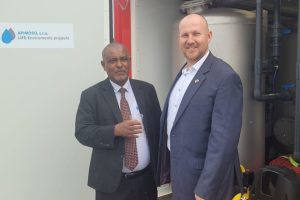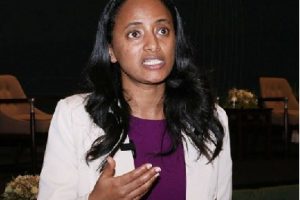Last week, the National Electoral Board of Ethiopia (NEBE) issued certificate of recognition to the newly reorganized Prosperity Party (PP), which was formed after the merger of the four parties that made up the ruling coalition Ethiopian People’s Revolutionary Democratic Front (EPRDF) and other five affiliate parties, with the exception of Tigray People’s Liberation Front (TPLF).
With the issuance of the certificate of recognition, it ended the final step the newly formed pan-Ethiopian party had to take to replace the soon to be former coalition, EPRDF. Along with this decision, comes the inevitable question of what it means to the country’s political landscape and the political transition the country is going through.
Yonas Zewde, an advisor at the Prime Minister Office and a Ph.D candidates at Addis Ababa University Department of Philosophy, argues that the formation of Prosperity Party means more accommodation and authentic implementation of the multi-national federalism. The merger of the parties by itself shows that the party will further implement federalism to its highest level while at the same time helping reverse the political fragmentation that is at full swing right now.
Moreover, with its decision to bring affiliate parties to the forefront of the decision making, who were hitherto in the background, the Party will boost political inclusivity, and allow vital institutions to flourish equally, he opines.
As to him, the key objective of the merger is to direct the nation along the path of democratic progress, and foster multi-nationalism and economic prosperity. This is while also correcting mistakes and injustices as well as healing divisions and a legacy of past resentment.
On the other hand, as the Party is aiming to working committedly to create a discourse rather than repression and division among nation and nationalities, the Party will strengthen unity and harmonious coexistence among the peoples of the country.
There are political forces, like TPLF, that are saying the newly formed ruling party is aiming to roll back centrist
political system and unitary government of yesteryears, putting in danger multicultural federalism that country has been adhering to for the past two, three decades.
In regards to this, Yonas argues that there is misunderstanding about the concept of ‘Medemer’; which will be Prosperity Party’s guiding principle/philosophy. The country is being driven to the brink with two opposing camps, where one sees the federal system as a threat to the unity of the country, while the other side is willing to compromise national unity for the sake of narrow ethnic interests. What the concept of ‘Medemer’ will do is reconcile these views and bring together their advocates to the same table, and through it resolve differences, he notes.
Assistant Professor of Political Science and International Relations at Dire Dawa University, Faajjii Chala for his part agrees that from the very beginning the key objective of the merger is to set the country in the path of democratic and economic progress, and allow multi-national federalism to burgeon by correcting the past mistakes.
With its new philosophy and structure, which makes sure all have equal chance of representation at federal level, he continues, it has the idea to transform and lead the country forward. By breaking from its past, it is preparing the country to the demands of current realities on the ground.
Furthermore, Faajjii mentions experience of many countries that chose to form pan national parties to foster democratic and economic progress in ethnically-diverse societies. As the experience of many countries showed us, such move ensures chance of representation at federal level, which helped nurture nascent democracies into fully blown working democratic system.
January 2020 The Ethiopian Herald
BY HAILE DEMEKE





